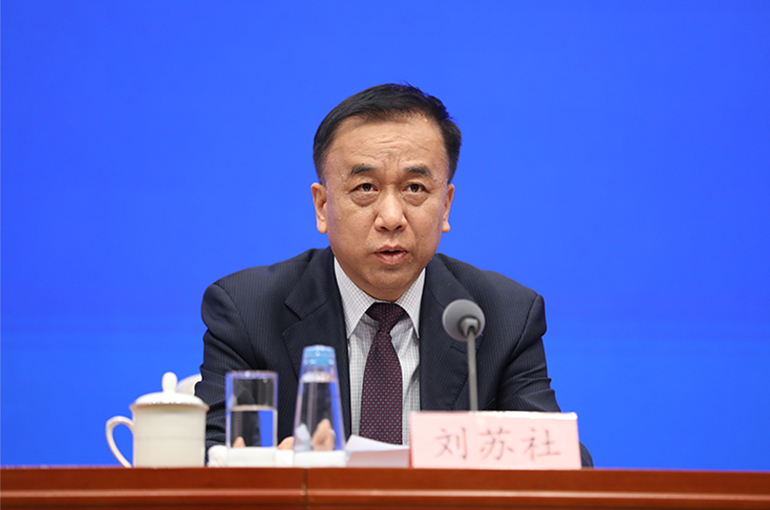 China to Further Buoy Economy by Expanding Role of Local Government Special Bonds
China to Further Buoy Economy by Expanding Role of Local Government Special Bonds(Yicai) Oct. 8 -- China plans to expand the scope and scale of local government special bonds to further boost economic growth, granting localities more leeway in how they use the funds raided by these debt sales.
The National Development and Reform Commission, the country’s top state planner, and the Ministry of Finance are looking more closely at how to enlarge the support provided by local government special bonds, NDRC Deputy Director Liu Sushe said at a press conference today.
This includes broadening the areas, scale, and proportion of special bond funds used as project capital, and giving local governments a certain degree of autonomy in the review process, he added.
Unlike general bonds, which are invested in public welfare projects and do not produce an income but are repaid through fiscal budgets, special bonds are invested in specific projects that can generate a stable income which will pay off the debt.
In the future, there could be no restrictions on the areas in which special bonds can be invested, and local governments could be given the power to decide independently how they use the funds, so as to give full play to the leading role of government investment, Yuan Haixia, president of China Chengxin International Research Institute, told Yicai.
The move forms part of China’s biggest economic stimulus package since the pandemic. The government set out a slew of new measures before last week’s National Day holiday to help the world’s second-largest economy reach its annual growth target of around 5 percent.
When delegating power to local governments, the central government can use incentives to guide local governments to invest in areas they would like, thereby controlling risks, said Zhao Quanhou, director of the Financial Research Office at the Chinese Academy of Fiscal Sciences.
In the first three quarters of the year, local authorities issued CNY3.6 trillion (USD510 billion) of this year’s CNY3.9 trillion (USD552.5 billion) special bond quota. Most of the funds have gone to social undertakings such as urban transport infrastructure, industrial parks, and the renovation of old homes, as well as to supplement the capital of small and medium-sized banks and repay debts.
The NDRC will urge local governments to issue the remainder of their quotas by the end of this month to speed up the implementation of projects and to ensure that special bonds play a real role in the economy, Liu said.
Editors: Dou Shicong, Kim Taylor